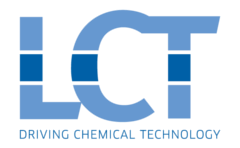Laurien Vandewalle is awarded an FWO postdoctoral fellowship and a BAEF postdoctoral fellowship to visit Stanford University
(06-09-2021)
Laurien’s project entitled “Putting CO2 to use: CFD-DEM modeling of super-dry reforming reactors using detailed kinetic models” deals with the development of a fundamental multi-scale modeling framework that can be used to design and optimize intensified reactor technologies for super-dry reforming (SDR) and many other processes.
Intensification of existing gas-solid processes such as reforming, and the development of novel Carbon Capture and Utilization (CCU) technologies will be of tremendous importance for the chemical industry to become CO2 neutral. Fundamental multiscale modeling is a key ingredient to optimize existing reactor configurations, develop novel reactor concepts and eventually to scale-up these processes. Detailed microkinetic models are therefore needed, in combination with 3D particle-resolved computational fluid dynamics (CFD-DEM) to predict flow fields and transport phenomena. During her PhD, Laurien developed catchyFOAM, an open-source CFD framework specifically for Euler-Euler simulations of catalytic fluidized bed reactors. Now in this postdoctoral project, catchyFOAM will be extended with a more fundamental, particle-resolved simulation approach applicable to both packed bed and fluidized bed reactors, both of which are today being considered for SDR. Using the new catchyFOAM CFD-DEM framework, it will be possible to design and optimize the operating conditions for SDR, hence revolutionizing the CCU field.
Laurien has been offered an appointment as a postdoctoral scholar at Stanford University, from July 1, 2021, to June 30, 2022. During this appointment she will be involved in simulation studies of various reacting flows at the NanoEnergy Laboratory of Stanford University. To fund this research, Laurien has acquired a fellowship from the Belgian American Educational Foundation (B.A.E.F.).
